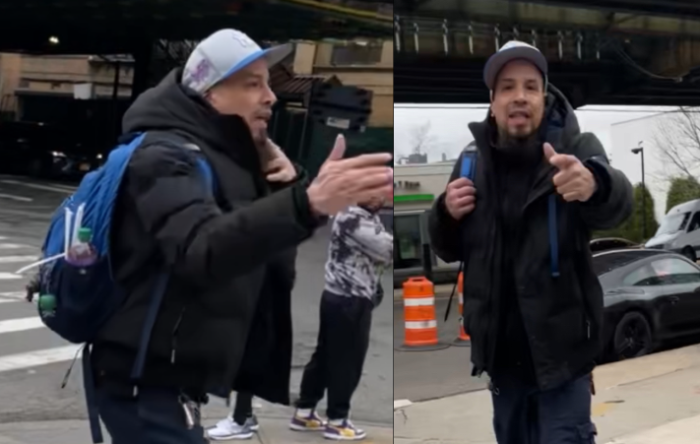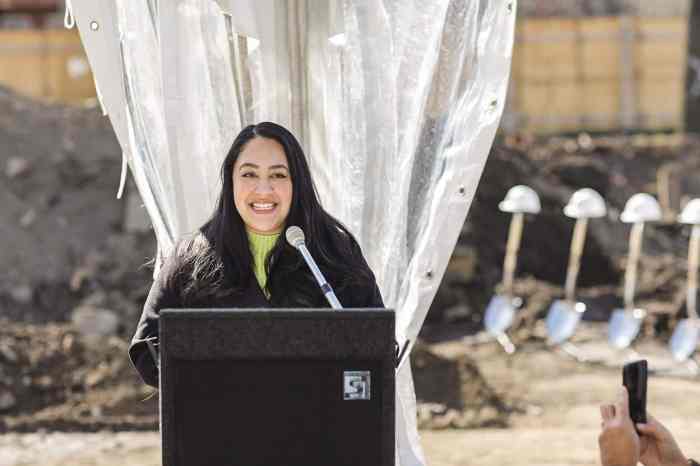Anti-gay petition case sent back to district level, but Supreme Court cool to disclosure exceptions
In a case involving a 2009 referendum challenge to Washington State’s “everything but marriage” domestic partnership law, the US Supreme Court has upheld the constitutionality of a state law authorizing public disclosure of the petitions submitted to put questions on the ballot.
The court, however, was sharply divided over the circumstances under which petition signers might be constitutionally entitled to an “exception” from the disclosure requirement.
The high court, on June 24, ruled 8-1 in Doe v. Reed that the federal district court in Washington State erred in striking down the statute as unconstitutional, but only six judges signed the opinion for the court by Chief Justice John Roberts. The court sent the case back to the trial court to give the plaintiffs an opportunity to seek an exception to the disclosure requirement.
Justice Clarence Thomas dissented, arguing that the statute placed an unconstitutional burden on the free speech rights of petition signers.
There was a veritable blizzard of concurring opinions — by Justices Sonya Sotomayor, John Paul Stevens, Antonin Scalia, Stephen Breyer, and Samuel Alito, with Breyer also signing Stevens’ concurrence and Justice Ruth Bader Ginsburg signing Sotomayor’s, together with Stevens. Neither Stevens nor Scalia signed Roberts’ opinion.
The case arose out of Washington State’s 2009 enactment of an amendment expanding its existing domestic partnership law to provide that registered partners would have virtually all the state-law rights of married couples. This was a step too far for opponents of same-sex marriage, who promptly began circulating petitions seeking a referendum to repeal the law. Once sufficient signatures were acquired, implementation of the amended law was stayed pending outcome of the referendum, which was held in November 2009.
Supporters of the new law promptly filed a request to receive copies of the petitions, to which they were entitled under state law. The referendum proponents, in turn, went to federal court, seeking an injunction against release of the petitions. They argued that the statute authorizing disclosure was unconstitutional because such exposure could deter people from signing petitions about controversial issues, such as same-sex marriage.
The referendum’s sponsors also argued that even if the statute was constitutional, its application in this case would be unconstitutional due to evidence that supporters of the partnership law planned to post the petitions on the Internet and to encourage people to confront signers. They pointed to the experience in California after passage the previous November of Proposition 8, when some supporters of that measure suffered consumer boycotts, picketing, social ostracism, and derogatory comments from supporters of marriage equality.
The federal district court quickly accepted their first argument, ruling that the statute was unconstitutional on its face and preliminarily enjoining release of the petitions pending a full trial. The state appealed to the US Court of Appeals for the 9th Circuit, which reversed, concluding that the plaintiffs were unlikely to prevail on their argument that the statute was facially unconstitutional.
The plaintiffs promptly petitioned the Supreme Court to stay the 9th Circuit’s ruling and keep the injunction in place, pending a high court review of the merits of the case. The court agreed to do this, so the petitions were not released prior to last November’s election.
The referendum was defeated and the state’s new domestic partnership law went into effect.
The Supreme Court heard arguments in the proponents’ appeal of the 9th Circuit’s opinion on April 28.
Apart from Thomas, all of the Court’s members agreed that the Washington statute authorizing disclosure of the petitions — include the name and address of every signer — was constitutional. That was almost all that the Court had to decide directly, since technically the only question before the justices was whether the district court’s ruling was correct.
However, the Supreme Court felt obliged to indicate whether the plaintiffs had enough of a First Amendment interest at stake to give consideration to their second argument — that due to the nature of this case they were entitled to an “exception” to the disclosure requirement. Almost everybody on the court agreed that they should be given the opportunity to seek such an exception — with the surprising exception of Scalia — but there was wide disagreement over the standard the district court should use in rendering that decision.
The Court’s ruling looked first at the question whether people who sign such petitions have any First Amendment interest in keeping their names and addresses secret from the public. It accepted the argument that there was a First Amendment interest here, but not an absolute one; the free speech right had to be balanced against the state’s interests in disclosure of such information.
The court found that the state’s interests in preventing fraud and providing transparency in its referendum process are strong enough to outweigh, in general, any free speech interests that petition signers have in remaining anonymous.
However, the court conceded that publicizing the names and addresses of signers might have the incidental effect of deterring some people from signing petitions.
The concept of balancing interests led the court to conclude that in some cases petition signers might have a valid claim that their First Amendment interests outweighed the state’s interest. On this point, Roberts’ opinion is relatively non-committal, quoting prior cases to the effect that plaintiffs might prevail by showing a “reasonable probability” that disclosure would lead to “threats, harassment, or reprisals” against the signers.
Had Roberts been more definitive, he would have lost several of his opinion signers. Sotomayor, Stevens, Ginsburg, and Breyer, to judge by their concurrences and the ones they signed, would lean toward rejecting an exception in the absence of strong evidence of serious consequences to petition signers.
In contrast, Alito suggested that the evidence the plaintiffs had already presented would probably suffice.
Scalia found little support for the argument that the plaintiffs had a serious First Amendment interest at stake, and, as at oral argument, was sarcastic about the plaintiffs’ claims.
Plotting out the various concurrences leads to the conclusion that there is no majority view on the nation’s high court concerning the circumstances under which a constitutional exception to the statute would be required, but Scalia’s position that plaintiffs have no viable First Amendment claim combined with the views of Stevens, Breyer, Ginsburg, and Sotomayor make clear that the plaintiffs would probably fail on their claim of special circumstances. Their evidence about potential harm was heavily speculative, the referendum is now long past, and tempers in Washington State have undoubtedly cooled since the November balloting.
Sotomayor, Stevens, Breyer, and Ginsburg all agree that the plaintiffs could not prevail without presenting significant evidence of serious harm were the petitions to be disclosed. Roberts and Justice Anthony Kennedy signed the majority opinion but none of the concurrences, so presumably their views on this are somewhere between those of Alito and the liberal concurrers.
To me, the most interesting opinion was — as is frequently the case — Scalia’s. He is a proponent of “originalism” in construing constitutional text, so he provides a history lesson about referenda and voting in America, starting from the proposition that a referendum process devoted to enacting or repealing bills is actually a form of legislating. When individuals sign petitions to put such referenda on the ballot, he argues, they are really acting as legislators, not just voters.
In that case, the Constitution tips heavily toward disclosure, since there is no tradition of conducting legislative activities in secret. He points out that the Constitution requires each house of Congress to publish a journal of its proceedings, recording and reporting the votes of their members on questions before them.
Scalia also points out that from the time the First Amendment became part of the Constitution in 1791 until well into the 19th century, there was no established practice of anonymous voting in the United States. Paper ballots came into use gradually through the 19th century, voting machines later still, and the custom in many parts of the country in the early years was for voters to come to the polls and announce their votes out loud. That being the case, if one accepts the proposition that the Constitution’s text means what the generation that adopted it would have thought it meant, it would be hard to find any sort of right to anonymous voting or legislating in the First Amendment.
“There are laws against threats and intimidation; and harsh criticism, short of unlawful action, is a price our people have traditionally been willing to pay for self governance,” wrote Scalia. “Requiring people to stand up in public for their political acts fosters civic courage, without which democracy is doomed. For my part, I do not look forward to a society which, thanks to the Supreme Court, campaigns anonymously and even exercises the direct democracy of initiative and referendum hidden from public scrutiny and protected from the accountability of criticism. This does not resemble the Home of the Brave.”

































